5 weight loss myths you should stop believing
Want to keep the belly bulge at bay? Get one expert’s advice on how to avoid some dietary pitfalls.
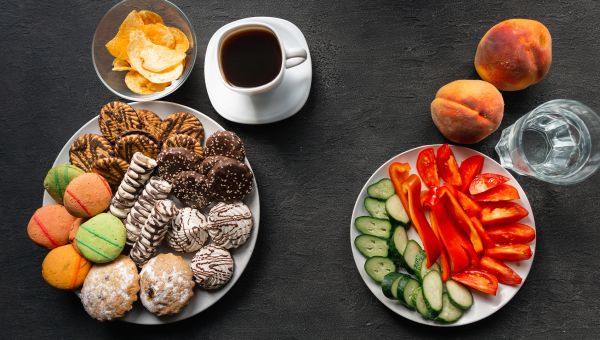
Anyone who has tried to slim down can tell you: there’s no simple solution for shedding pounds. But drastic steps, like eliminating whole food groups, aren’t a healthy way to lose weight. They’re also not an effective long-term solution for keeping belly bulge at bay.
“These quick, instant gratification myths sometimes result in modest weight loss in the short term, but they're not sustainable or effective in the long-term,” says Tammy Baranowski, MS, RDN, a Registered Dietitian with Orange Park Medical Center in Orange Park, Florida.
Meanwhile, these misconceptions, which can be harmful to your health, may fuel dieting frustration. It’s time to separate fact from fiction, debunk some common weight loss myths, and learn some proven ways to lose weight.
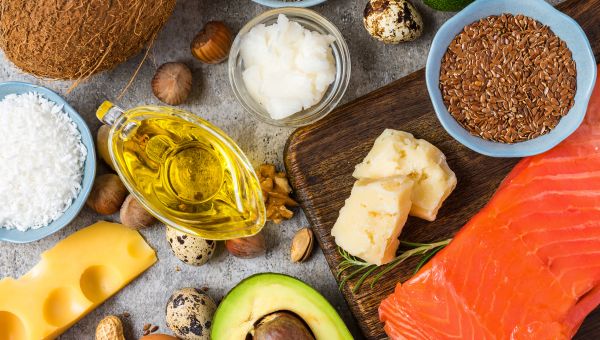
MYTH: You Should Avoid Fat to Lose Weight
Fats have gotten a bad reputation, but you don’t have to eliminate them from your diet to lose weight. In fact, a Harvard meta-analysis of 53 studies, involving more than 68,000 people, compared the effectiveness of various diets and resulting weight loss over the course of a year or more. Researchers found those on a low-fat eating plan weren’t particularly successful in shedding pounds and keeping them off.
What's more, replacing your favorite foods with low-fat versions could introduce unhealthy additives into your diet. “When they remove the fat, they have to replace it with something else so low-fat products are often filled with a lot of sugar and sodium,” Baranowski explains.
Avoid these unwanted ingredients by opting for healthy fats, including olive oil, salmon, avocado and walnuts. These good-for-you fats can not only help improve heart health, but also help you maintain a healthy weight when eaten in moderation. Remember, don’t overdo it. Foods rich in healthy fats still tend to be higher in calories. Be sure to mind your portion size when slicing an avocado, or sprinkling nuts into your salad.
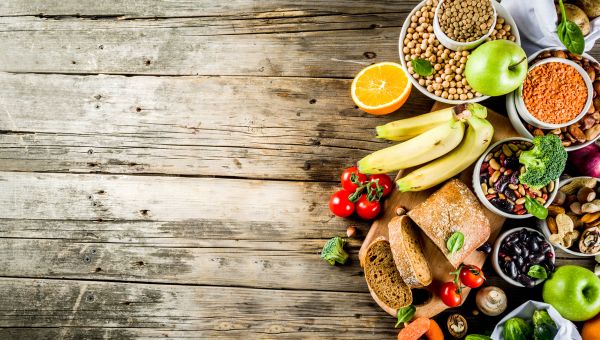
MYTH: Low-Carb Diets Are Best for Weight Loss
There’s no shortage of well-known low-carb eating plans on the market, such as the Atkins and South Beach diets.
Many people have a misguided fear of carbs, according to Baranowski. “I think that's sad,” she says. “Because carbs are so important to our health, and they taste good, too.”
In fact, evidence suggests that whole grains as part of an overall healthy diet, rich in fruits and vegetables, can help you maintain a healthy weight. The fiber content of whole grains helps you feel satisfied with fewer calories. And despite the claims of low-carb diets, there is little evidence to suggest that a diet rich in healthy carbs contributes to weight gain or obesity.
That said, when it comes to carbs, you do need to consider quality as well as quantity. Some carbohydrates are simply better for our bodies than others. High-quality carbs contain more fiber, which helps slow your digestion and, in turn, keeps your blood sugar from spiking. Low-quality carbs, on the other hand, have usually been processed or refined in some way. This may strip away most of that helpful fiber.
Naturally occurring carbs, found in fruits, vegetables, whole grains, legumes and seeds, should be a part of a healthy diet. In fact, dietary guidelines suggest that between 45 and 65 percent of your daily calories should come from carbohydrates. But avoid refined grains like white rice and foods with added sugars, including baked desserts and candy, which are high in calorie but low in nutritional value.
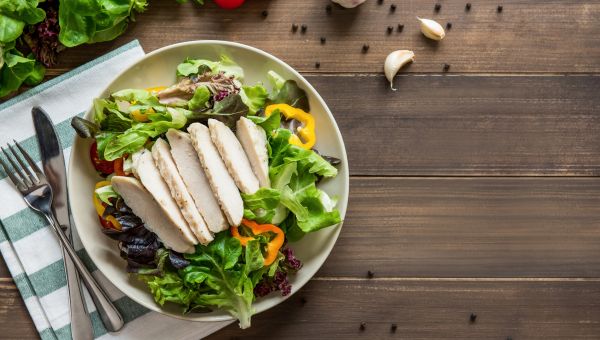
MYTH: All Calories Are Created Equal
Your diet affects your metabolism, so when it comes to shedding extra pounds, the source of your calories matters. Sugar-rich foods, like cakes and cookies, can cause a spike in your blood sugar—a signal to your body that it should hold onto more fat. This isn’t a good thing for those looking to slim down. Instead, fuel your body with lean protein, fresh produce, whole grains and a moderate amount of healthy fats.
Even if foods have the same number of calories, some may be more effective in helping people lose weight than others.
A candy bar and an ounce of raw almonds, for example, contain about the same number of calories. But the nuts, which are loaded with healthy fats, will likely keep you satisfied longer. If you’re feeling full, you’re less likely to graze and consume extra calories throughout the day, which can lead to weight gain.
Rather than making a trip to the vending machine, think ahead and prepare and pack healthy meals and snacks that you can have when hunger strikes in the afternoon.
“Planning ahead and setting yourself up for success is so important," says Baranowski. "So, take a few minutes every weekend to think about and plan your meals for the week."
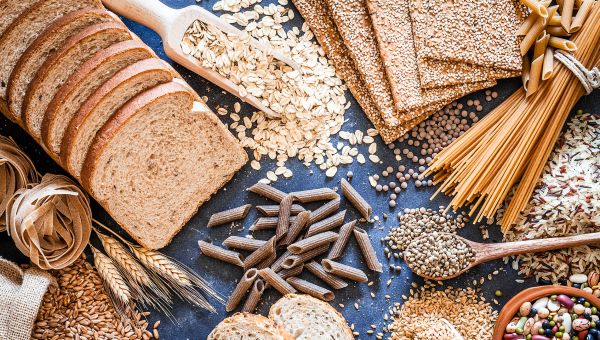
MYTH: Go Gluten-Free to Lose Weight
Gluten, a protein found in grains like wheat, barley and rye, has received a lot of attention in recent years. Gluten-free diets were created as a way to manage the symptoms of those with celiac disease—a condition that causes inflammation of the small intestine and can lead to distressing symptoms, including diarrhea, constipation, gas, bloating, abdominal pain, fatigue, and sometimes nausea or vomiting. Those who have gluten sensitivity, which is a delayed adverse reaction to the protein, may have similar symptoms and also benefit from avoiding gluten. Keep in mind however, unlike celiac disease, gluten sensitivity doesn’t damage the intestines.
But gluten-free diets have been adopted by people without these conditions. Why? Some eliminated the protein from their diet because they believe they are intolerant to it, while others swear off gluten in an attempt to lose weight. But research suggests gluten is unlikely the cause of your bulging belly—and there’s no direct link between eliminating gluten and losing weight. In fact, gluten-free products are often high in calories and fat, which could lead to weight gain. Meanwhile, some healthy whole grains contain gluten, and avoiding them could deprive your body of valuable nutrients, like protein.
“I would just say, as a general takeaway, anything that eliminates an entire food group just won't work,” Baranowski advises. “So, I would avoid eliminating entire food groups, and anything too restrictive; it's not going to have long-term success.”

MYTH: You Can’t Eat Your Favorite Foods
As soon as we commit to a diet, many of us pledge to give up unhealthy foods—even the guilty pleasures we love most. Don’t be so quick to go cold turkey on your favorite takeout order or bakery staple, though.
“Anybody who feels deprived is not going to be successful in managing their weight or leading a healthy lifestyle,” Baranowski points out.
The key to losing weight is consuming fewer calories than you burn. It’s possible to fit well-planned snacks, and even the occasional unhealthy indulgence, into a healthy weight loss plan. The key however, is keeping track of your calories. Research suggests those who log their daily intake, are more successful at losing weight than those who don’t.
Work with your healthcare provider or a dietitian to determine how many calories you should be eating to slim down, and keep a log of the foods and drinks you consume. Food scales are an inexpensive way to measure portions before filling your plate. A handy notepad or even a kitchen napkin would suffice as a food journal.
You can also keep track of your meals with phone applications, like Sharecare, available for iOS and Android. Simply log your food and beverage choices, and the application will keep track of your daily intake. Here’s how it works.
For Android and iOS users:
- Steps are automatically tracked once you activate the tracker. To configure steps tracking, click the gear icon.
- You can also track steps manually via the Tracker.
For desktop users:
- If you don’t have a mobile device, steps can be tracked manually via the desktop Tracker.
More On


video

article
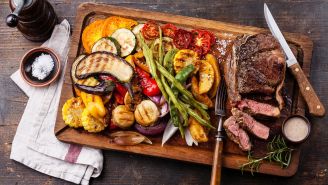
slideshow


video


video
